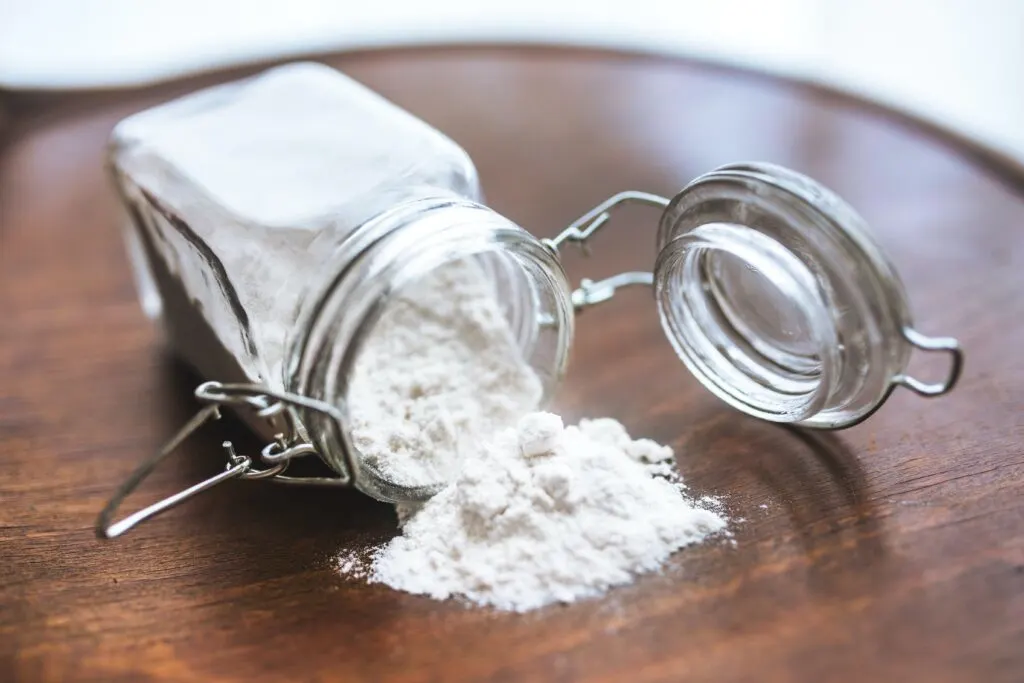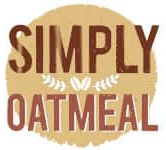Oat flour is a rising star in the baking world, and for good reason! This versatile flour, made from ground oats, is not only naturally gluten-free but also boasts a unique flavor and texture that can elevate your baked goods. Whether you’re looking for a healthier alternative to all-purpose flour or want to experiment with gluten-free baking, oat flour is definitely worth trying. Here are the best oat flour substitutes.

What is Oat Flour?
Oat flour is made from finely ground oats. Unlike wheat flour, which comes from the endosperm of the wheat kernel, oat flour is made from the entire oat groat, including the bran, germ, and endosperm. Oat flour is packed with more nutrients than all-purpose flour, including fiber, protein, vitamins, and minerals.
Is Oat Flour Gluten-Free?
Oat flour has become a popular baking ingredient in recent years, thanks to its delicious flavor and versatility. But if you’re following a gluten-free diet, you might be wondering: is oat flour gluten-free?
The answer is a bit complicated. While oats themselves are naturally gluten-free, oat flour can sometimes contain traces of gluten due to cross-contamination. This means that oats may have come into contact with wheat, barley, or rye during farming, processing, or packaging.
Here’s what you need to know about oat flour and gluten:
Oats are naturally gluten-free. They contain a different type of protein called avenin, which is not harmful to people with celiac disease or gluten sensitivity.
Cross-contamination is a risk. Oats are often grown and processed in the same facilities as wheat, barley, and rye. This can lead to small amounts of gluten being transferred to the oats.
Look for certified gluten-free oat flour. To be sure you’re getting gluten-free oat flour, look for brands that are certified gluten-free by a reputable organization such as the Gluten-Free Certification Organization (GFCO) or the National Celiac Association (NCA). These organizations have strict standards for testing and labeling gluten-free products.
Homemade oat flour can be a good option. If you’re concerned about cross-contamination, you can make your own oat flour at home using a food processor or blender. Just be sure to clean your equipment thoroughly before and after grinding the oats.
Is Oat Flour Ground Oatmeal?
Oat flour and ground oatmeal are both healthy and versatile ingredients, but they’re not exactly the same thing. If you’re new to baking or cooking with oats, you might be wondering what the difference is between these two pantry staples.
In a nutshell, oat flour is finely ground oats, while ground oatmeal is more coarsely ground. Oat flour has a smoother texture and is better suited for baked goods like cookies, pancakes, and muffins. Ground oatmeal, on the other hand, is great for making porridge, oatmeal bowls, and breading for fried foods.
Differences Between Oat Flour and Ground Oatmeal:
Oat Flour
Made from whole oat groats finely ground into a powder
Has a smooth, flour-like texture
Gluten-free (if made with certified gluten-free oats)
Mildly nutty flavor
Absorbs more liquid than ground oatmeal
Best for baking and thickening sauces
Ground Oatmeal
Made from whole oat groats coarsely ground
Has a slightly chewy texture
Not gluten-free (unless made with certified gluten-free oats)
Nutty flavor
Absorbs less liquid than oat flour
Best for making porridge, oatmeal bowls, and breading

Purpose of Oat Flour in Baking and Cooking
Oatmeal, the quintessential breakfast of champions, isn’t just for mornings anymore. Its humble little friend, oat flour, has emerged from the pantry shadows to become a baking and cooking superstar. But what exactly is the purpose of oat flour in these culinary creations? Buckle up, baking enthusiasts, because we’re about to dive into the world of this versatile wonder flour.
Gluten-Free Flour Powerhouse
First things first, oat flour is a naturally gluten-free flour. This makes it a godsend for those with celiac disease or gluten sensitivity, allowing them to indulge in delicious baked goods without the worry of unpleasant side effects. But its benefits extend far beyond just being gluten-free.
Moisture Master and Texture Architect
Oat flour possesses an uncanny ability to absorb moisture like a champ. This translates to baked goods that are incredibly moist and tender, with a melt-in-your-mouth kind of texture. Think fluffy muffins, chewy cookies, and sinfully moist quick breads. Oat flour also adds a unique crumbly texture that elevates the eating experience of pancakes, waffles, and even savory dishes like meatloaf.
Nutritional Ninja
Beyond its textural prowess, oat flour packs a serious nutritional punch. It’s a good source of fiber, protein, and essential minerals like iron and magnesium. This makes it a guilt-free indulgence that keeps you feeling fuller for longer. And let’s not forget the subtle, nutty flavor that oat flour brings to the party, adding a depth of taste that complements an array of sweet and savory ingredients.
Baking with Oat Flour
So, how do you incorporate this flour into your baking and cooking repertoire? The good news is, that it is incredibly versatile! You can use oat flour to:
Substitute all or part of the all-purpose flour in your favorite recipes for a gluten-free twist. Start by replacing 25% of the all-purpose flour with oat flour and adjust from there depending on the desired texture.
Create entirely gluten-free baked goods by using oat flour as the base flour. Combine it with other gluten-free flours like almond flour or coconut flour for optimal results.
Add moisture and texture to pancakes, waffles, and quick breads. Swap out some of the all-purpose flour for oat flour.
Thicken sauces and soups. Oat flour’s natural thickening power makes it a healthy alternative to cornstarch or wheat flour.
Oat flour is more than just a substitute for all-purpose flour; it’s a baking and cooking game-changer. Its ability to enhance texture, add moisture, and boost nutrition makes it an essential ingredient for every pantry. So, the next time you’re whipping up a batch of cookies or crafting a comforting casserole, consider giving oat flour a try. You might just discover your new favorite baking buddy.
Oat Flour Substitutes
When it comes to healthy baking, oat flour is a popular choice for many due to its numerous health benefits, including high fiber content and a lower glycemic index compared to traditional wheat flour.
However, there are moments when you find your kitchen void of this wholesome ingredient, or perhaps you’re catering to specific dietary needs that oat flour doesn’t meet. Fortunately, a variety of substitutes can step in to save your recipe without sacrificing taste or texture.
Whether you’re gluten-free, nut-free, or simply looking to experiment with new flavors and nutritional profiles, this guide will introduce you to the top oat flour substitutes that keep your baking both delicious and diverse.
Top Oat Flour Substitutes
Almond Flour: A popular grain-free alternative, almond flour is ideal for those following a gluten-free or low-carb diet. Rich in protein and healthy fats, it adds a nutty flavor and moist texture to baked goods. Perfect for cookies and quick bread, almond flour can often be used in a 1:1 ratio with oat flour. This is my favorite oat flour substitute.
Coconut Flour: Coconut flour is known for its high fiber content and subtle coconut flavor. It is denser and more absorbent than oat flour, so adjust your recipes accordingly, typically using less flour or more liquid.
Whole Wheat Flour: For those not avoiding gluten, whole wheat flour is a great alternative that offers a similar nutritional profile to oat flour. It’s higher in protein and creates a denser, chewier texture in baked goods. Substituting it for oat flour usually requires a 1:1 ratio.
Rice Flour: Rice flour is a versatile substitute for oat flour. While it doesn’t offer the same nutritional benefits, it provides a neutral flavor and light texture, making it ideal for cakes and pastries.
Buckwheat Flour: Despite its name, buckwheat is not related to wheat and is gluten-free. It has a strong, nutty flavor and is rich in fiber and nutrients. Buckwheat flour works well in recipes that can handle a denser, more robust texture, like pancakes and quick bread.
Quinoa Flour: Made from ground quinoa, this flour is protein-packed and gluten free. It offers a distinct, earthy flavor. Due to its strong taste, it is often best mixed with other flours.
Chickpea Flour: High in protein and fiber, chickpea flour is a nutritious substitute for oat flour. It has a slightly bean-like flavor and works well in savory dishes. In addition, it can also be used in sweet baking when combined with other flours.

Frequently Asked Questions (FAQs)
Try quinoa flakes, buckwheat groats, or almond flour for a similar texture.
Yes, you can replace oat flour with coconut flour, but remember coconut flour is more absorbent, so use less of it and increase liquid in the recipe.
Substitute for oat fiber in baking: Try coconut flour, psyllium husk, or almond flour for similar texture and health benefits.
Yes, oat flour is good for baking. It adds a nutty flavor and is gluten-free, but may require adjustments to recipes due to its unique texture.
You May Also Like
If you enjoyed this post about oat flour substitutes, please leave a comment below!
